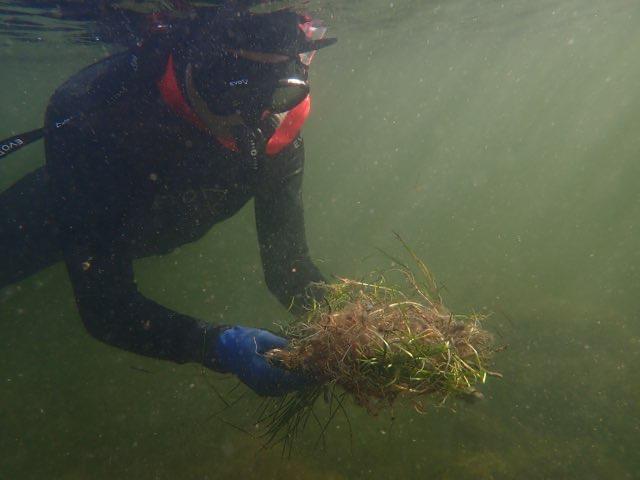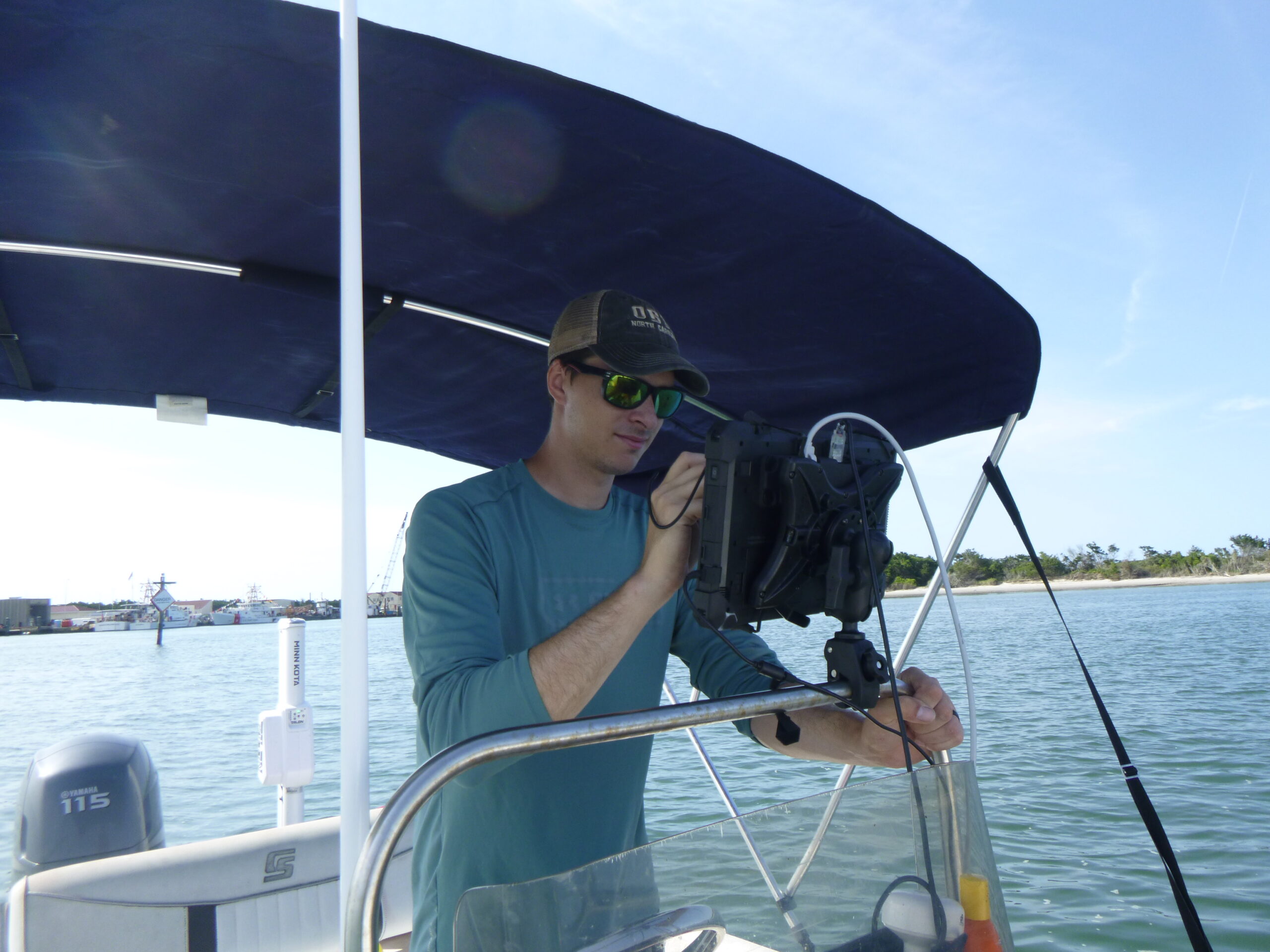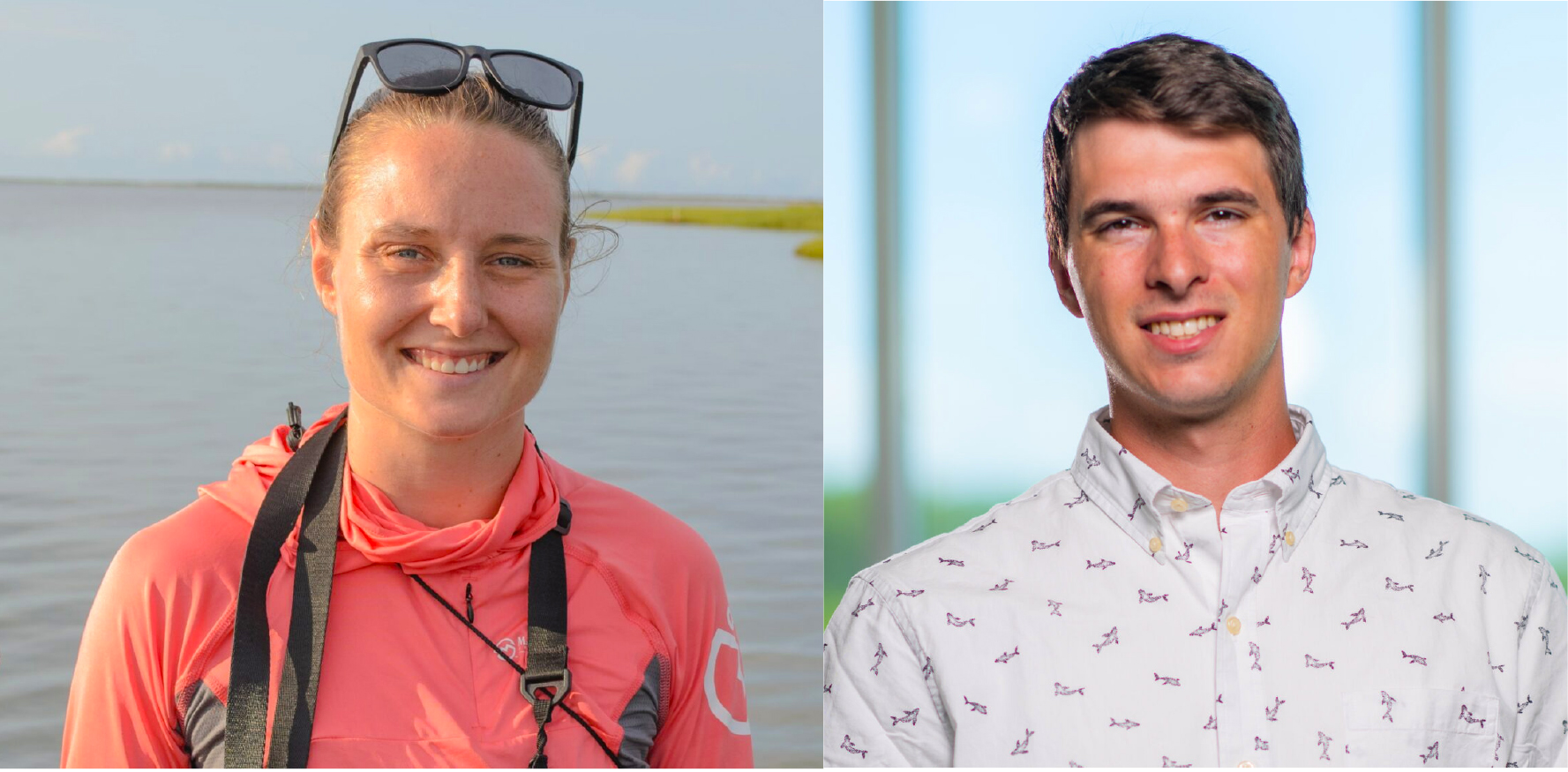NC Coastal Research Fellows Announced
Contact:
John Fear, 919-515-9104, jmfear@ncsu.edu
Katie Mosher, 919-515-9069, katie_mosher@ncsu.edu
Christy Simmons, 252-515-5409, christy.simmons@ncdenr.gov
Madison Lytle and Andrew McMains will be the 2022 North Carolina Coastal Research Fellows. Their research will look at reduced water clarity’s influence on seagrass growth; and the effects of dredging on inlet-inhabiting fish, respectively.
North Carolina Sea Grant and the N.C. Coastal Reserve and National Estuarine Research Reserve jointly fund this opportunity, which is open to graduate students across North Carolina. With funding for one year, recipients conduct research within one or more of the Coastal Reserve’s 10 sites.
With the quality of applications received and the amount of work needed, two fellowship projects are being supported this cycle, rather than one project in recent years.
“We appreciate the partnership with North Carolina Sea Grant to fund student research at our reserves,” says Rebecca Ellin, program manager of the Coastal Reserve. “Support for these fellowships allow us to address important site management topics facing North Carolina’s coast.”

Madison Lytle, a doctoral student in Integrative, Comparative, and Marine Biology at the University of North Carolina Wilmington, will research how water clarity affects the presence of Halodule wrightii — a type of seagrass primarily impacted by light availability — in North Carolina. H. wrightii plays an important role in aquatic ecosystems and thrives in warmer temperatures.
The documented decline of H. wrightii in North Carolina may be due to reduced water quality, a driving issue for Lytle’s study. “Seagrass is a critical habitat for a multitude of species in our estuarine systems,” says John Fear, Sea Grant deputy director. “Understanding the factors impacting its ability to thrive is vitally important.”
This work will take Lytle to the Rachel Carson Reserve, where she will sample H. wrightii in different temperatures and at different depths to understand light limitation’s effect on H. wrightii. Her research will help the N.C. Environmental Management Commission determine whether or not current light thresholds are sufficient for H. wrightii sustainability in the state.
Lytle plans to work with UNCW’s MarineQuest to develop a curriculum for Sea G.E.M.S., a summer program encouraging young girls to explore marine science.

Andrew McMains is a doctoral student in East Carolina University’s Interdisciplinary Doctoral Program in Biology, Biomedicine and Chemistry. His research focuses on the impacts of dredging on how fish inhabit and respond to dredge plumes in Beaufort Inlet in Carteret County.
“This work will help us better understand how needed channel maintenance impacts our fisheries resources. Down the road, studies like this could help identify better management strategies enhancing our ability to maintain critical channels as well as our natural fisheries resources,” Fear notes.
Using high-resolution acoustic imaging, McMains will deploy an Adaptive Resolution Imaging Sonar (ARIS) to collect images that can quantify the abundance and types of fish found in Beaufort Inlet as well as the estuarine channel complexes around the Rachel Carson Reserve. He will examine the size and effects of dredging plumes on turbidity for fish.
Like Lytle, McMains plans to provide his results with interested stakeholders while also sharing his results through SciMatch outreach events to bring his research to middle school classrooms in the state.
Read about recent Coastal Research Fellow Mollie Yacano’s work on invasive wetland grass and about the Coastal Research Fellowship at go.ncsu.edu/CRF.
##



